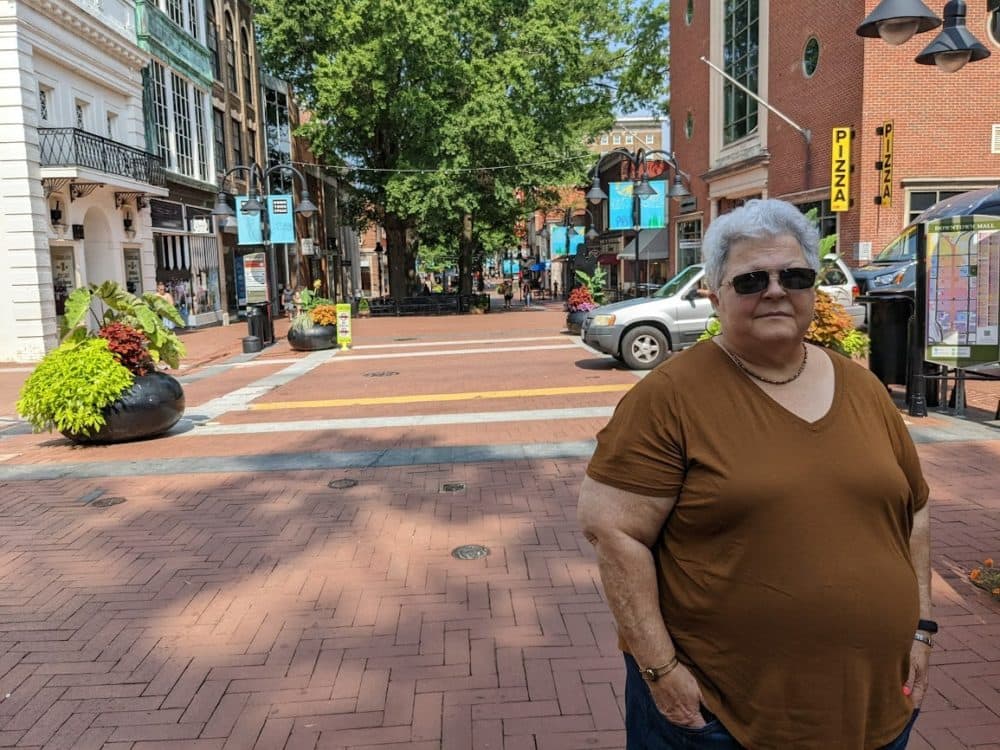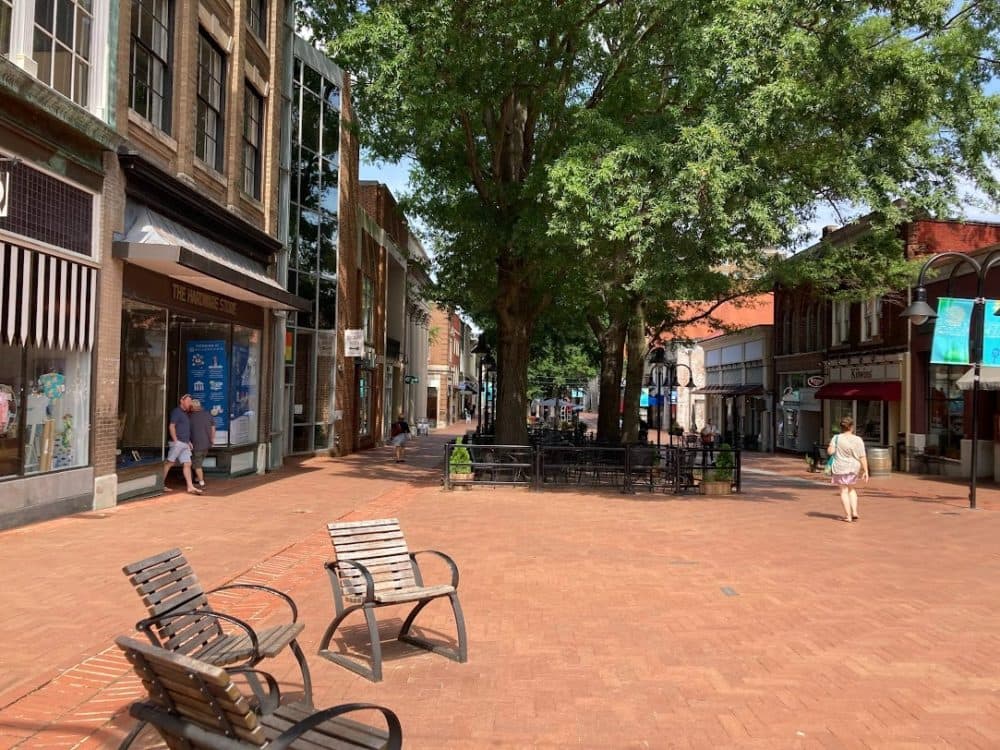Advertisement
Five years after her daughter's death at the Unite the Right rally, Heather Heyer's mother reflects
Resume
Five years ago, 32-year-old Heather Heyer was killed at the Unite the Right rally in Charlottesville, Va.
Heyer was part of a crowd of counter-protesters that filled a narrow, one-way street in downtown Charlottesville when an avowed white nationalist deliberately drove into the crowd. Heyer's mom, Susan Bro, recalls how it happened.
"He sat there a minute, he backed up, and then he sped forward across two speed bumps into a crowd of counter-protesters,” Bro says.
The impact sent bodies flying. Several people were injured. Heyer died.
After her daughter’s death, Bro started the Heather Heyer Foundation, providing scholarships to high school students wanting to continue their education. She has since shut down the foundation to focus on her health.

Interview Highlights
On how she’s doing, five years after Unite the Right
“I have good days and bad the month before … and I wrote a piece about grief a couple of years ago, how it comes in waves. And that's typical for everybody who's lost somebody. It's not just me by any means, but sometimes the waves are really high and sometimes the waves are shallow, and sometimes you're just aware of their lapping at your ankles. But when you've lost a child, you always have that sense of loss. But you do learn to live and go on despite it. I mean, it's either that or die. And I chose not to die. I chose to keep going.”
On if the city has recognized Heather at the location of her tragic death
“I don't want Heather recognized anymore than she is. She got too much attention as it was. Heather was just there to walk in support that day. She was not an organizer. She simply wanted to walk in support of the young ladies in her office that day who were also marching and way too much attention has been given to Heather.
“I had to fend off people who wanted a park named after her or a statue in her honor. I said, ‘She wouldn't want it. I don't want it.’ I think naming the street after her is really all that needs to happen. And what we need to focus on going forward, and rightfully so, is to focus on the issues that led to her murder — and that is to combat white supremacy, institutionalized white supremacy, to combat racism, to combat division [and] find ways to make life equitable for everyone.”
On where Charlottesville stands in regard to equity and justice today
“Struggling and struggling. I remember meeting people from Ferguson right after Heather was murdered, and I asked them, ‘How was Ferguson doing?’ And they said, ‘struggling.’ Ten years later, they were still struggling. And Charlottesville was doing some of that.
“Housing is still a major issue for communities of color. Policing is still a major issue for communities of color. I just see all the same issues that they had before 2017 still being issues. But I will also add, I don't live here. I don't participate in government here. I read about it. I get the publications by email, but I'm not part of this community. I'm not involved.”
On whether commentators who watch alt-right hate and extremism for a living are making it more mainstream
“Oh, yeah … fully intentional. And they make no bones about it.”
On how she thinks Charlottesville fits into it the state of extremism in the U.S. today
“Movements like these tend to arise when communities are frustrated economically and they start looking for excuses and people to blame. They start looking for scapegoats. We've seen this pattern again and again in history. And then people are all too eager to follow somebody else's solution.”
On finding hope
“Well, I'm hoping that this is the farthest that the pendulum swings. Moving forward, we've got to find a way to make it more equitable for everyone. We still have a long way to go with that."
On spending the rest of her life as Heather Heyer’s mom and if it comes with a burden
“[It’s]funny because when I taught school, she said ‘I'm always Miss Heyer's daughter’ …well, she's got it even now.
“I have loved meeting people. I have loved traveling. I have loved being able to make a difference in the world. But it was the cost of someone so dear to me that … I would rather have her back than have any of that happen. But I don't want to take away the good in the world that it caused to her murderer. It did serious harm to the white supremacy movement for a while, and in some aspects it's still doing that. Not just her murder, but the car attack and the whole weekend. You know, there are people still being sued. Heck, I've still got a lawsuit going. I'm not looking for any money out of it, just trying to stop people from doing stuff.”
On what she sees when she looks at the world through Heather's eyes
“Oh, she's always skeptical. She's always prodding people. Like I said, she's not quiet. She's not. She has a rest in peace. She rests in power. I often hear from people that they got this nudge from Heather or that nudge from Heather or they felt like something came together because of Heather.”
James Perkins Mastromarino and Jorgelina Manna-Rea produced and edited this interview for broadcast with Catherine Welch. Welch also adapted it for the web.
This segment aired on August 11, 2022.